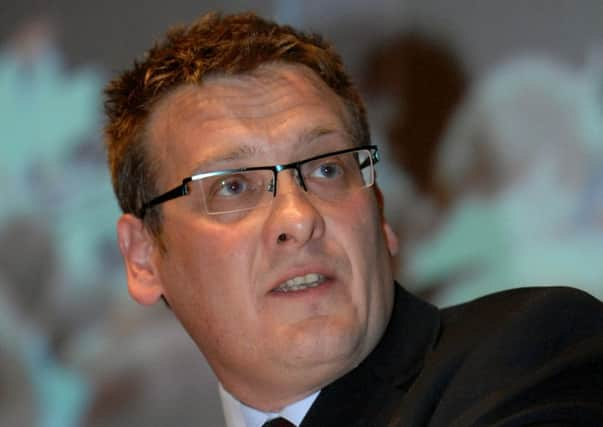Karl Turner: Mental health lottery cost my nephew his life


Last year, at just 25, my nephew Matty sadly took his own life after a brief but severe bout of depression and anxiety. After getting a referral from a GP, Matty was told that he would have to wait around six months for his first appointment. The wait was too long.
Matty’s case shows just how rapidly people can fall and how important it is for people to have access to treatments in a timely manner. Having recently moved out and secured himself a successful job with a well-respected law firm, the world was his oyster.
Advertisement
Hide AdAdvertisement
Hide AdWe had high hopes that Matty would go far and do us all proud. I had met with him a week before his suicide and at the time there was no indication to me that he would even contemplate taking his own life. He had taken some time off work because he was “unwell” and he had told me about the referral from the GP and the expected waiting time. It occurred to me that Matty was a bit down but not to the extent of suicide.
After his death, it took me a while to come to terms with what had happened. It took me a year before I could speak about it without bursting into tears. I am determined, however, to make sure that people can learn from Matty’s death as well as highlighting the problems that many people like Matty who have mental health issues face when trying to access treatment.
Whilst it is welcome that the Government has introduced standards for access to talking therapies, it is simply not acceptable that some people are having to wait for extended periods in times of crisis.
Figures given to me by the mental health charity Mind show that in some areas of the country people can be waiting on average up to 149 days for treatment. There have even been some reports of people waiting up to four years for treatment. Access to treatment is a postcode lottery and this disparity is one which needs to be addressed.
Advertisement
Hide AdAdvertisement
Hide AdWaiting for treatment can damage relationships, stop people working and have long-lasting effects on their mental health. A 2014 survey from Mind found that whilst waiting for treatment:
67 per cent of people became more unwell;
67 per cent had suicidal thoughts;
40 per cent harmed themselves;
37 per cent went into crisis;
16 per cent attempted to take their own lives;
Three per cent were sectioned.
These statistics are damning and show the importance of being able to access treatment in a timely manner.
Parity of esteem for mental health in the NHS is an important step forward, but we must recognise that in 2016, mental health is still not seen as a 21st century problem by some policy makers. We need to treat mental health just as importantly as physical health. We expect that when we have a broken arm that we are patched up and sent on our way immediately. The reality for many sufferers with mental health issues is that they are sent on their way but without treatment. This agonising wait for treatment leads many to contemplate suicide and self-harm which is why the Government needs to end the effective postcode lottery on treatment.
Parity also extends to other walks of life. Be it at school, work or anywhere in public life, more needs to be done to make sure that people who suffer with mental health issues do not feel further isolated.
Advertisement
Hide AdAdvertisement
Hide AdThe disparity in mental health provision is not just restricted to where one lives. Access to treatment varies greatly when it comes to gender, ethnicity, age and sexuality. There needs to be joined-up thinking when it comes to the funding of mental health, it makes no sense for so little to be directed to Child and Adolescent Mental Health Services (CAMHS) when that is the period that most problems are established.
Only through concerted action on mental health can we achieve true parity of esteem. Parity comes not just from accessing treatment but accessing the right treatment. Cognitive behavioural therapies are just one piece of an increasingly complex policy puzzle.
There is a crisis in mental health provision in the NHS. The Government should seek to end the postcode lottery that is currently in place and put mental health provision front and centre in any policy priorities that it has. It is only if we have the political will that we can end what has become a national scandal of funding and provision for mental health care.
Karl Turner is the Labour MP for Hull East.